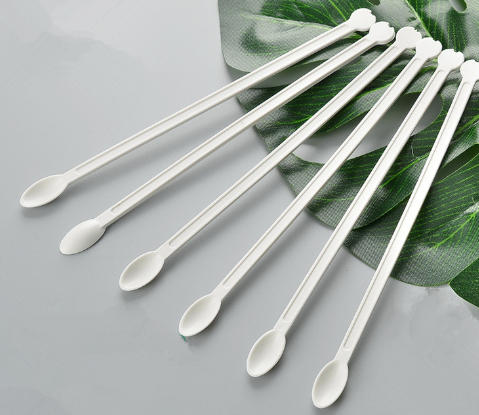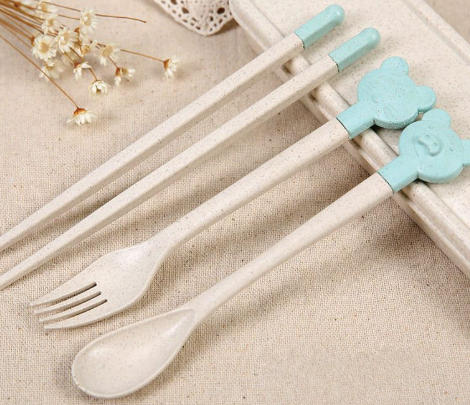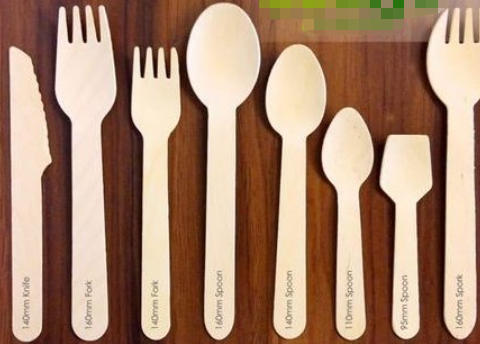
Content Menu
● Hebei Gurui Environmental Protection Packaging Products Co., Ltd.
>> Certifications and Innovation
>> Tailored OEM & Market Reach
● You Cheng
● Hyde Group
● MVI ECOPACK
● Ancheng
● E colink
● GREENJOY
● Hongtai
● Hongsheng
● OWNFOLK
● The Manufacturing Process of Disposable Cutlery
>> Bamboo and Wood Cutlery Production
>> Plastic and PP Cutlery Production
>> Paper and Plant Fiber Cutlery Production
● Trends Shaping the Disposable Cutlery Industry
● Choosing the Right Chinese Disposable Cutlery Wholesale Manufacturer
● Conclusion
● FAQ
>> 1. What are the primary materials used in disposable cutlery?
>> 2. What certifications should a reputable Chinese manufacturer have?
>> 3. What custom OEM services are available?
>> 4. How can buyers ensure long-term supply chain reliability?
>> 5. Are biodegradable disposable cutlery sets truly compostable?
● Citations:
The surge in global demand for eco-friendly and efficient disposable cutlery has propelled China to the forefront as the world's manufacturing center for these products. Restaurants, food-service companies, catering businesses, and major retailers from around the globe increasingly rely on Chinese disposable cutlery wholesale manufacturers for high-quality, cost-effective solutions. These manufacturers provide not only traditional plastic utensils but have rapidly expanded into biodegradable and compostable ranges to meet international sustainability goals. This article presents an in-depth look at the top 10 disposable cutlery wholesale manufacturers in China, offering insights into their OEM services, customization options, environmental certifications, and what makes Chinese suppliers stand out internationally. Hebei Gurui Environmental Protection Packaging Products Co., Ltd. is placed at the top for its outstanding innovation and capacity.[11][12][13]

Hebei Gurui Environmental Protection Packaging Products Co., Ltd.
Located in Zhangjiakou City, Hebei Province, Hebei Gurui is among the leading suppliers of biodegradable plant fiber packaging and disposable cutlery. Established in 2021, the factory occupies nearly 80 acres with an advanced production facility covering 40,000 square meters. With over 30,000 tons annual capacity, Hebei Gurui manufactures products from sugarcane pulp, bamboo pulp, and wood pulp. Their focus on high-temperature molding, waterproof and oil-resistant processing, and rigorous quality checks ensures top safety and durability for global export. Products undergo both metal detection and UV disinfection, aligning with diverse demands across food delivery, catering, and branded retail packaging.[12][11]
Certifications and Innovation
Hebei Gurui is distinguished by an impressive array of credentials, including ISO9001, ISO14001, ISO22000, BRC, HACCP, US FDA, BPI, EU LFGB, and EN13432 certifications. With over twenty patented technologies, the company emphasizes R&D, proprietary equipment, and full in-house capability for rapid customization and private branding. Their OEM service caters to international clients needing specialized cutlery, trays, plates, cup lids, and set packaging, all customizable to distinct brand requirements and regional compliance standards.[11]
Tailored OEM & Market Reach
The company offers an efficient “one-stop” OEM service—covering everything from factory planning and equipment procurement to tool development, packaging design, and logistics—all under strict confidentiality for brands seeking exclusive markets. This end-to-end control, combined with Gurui's agility and ability to scale, positions it as a partner of choice for major international wholesalers, supermarkets, and food chains.[11]
You Cheng
You Cheng, founded in 2009, is well-regarded for leveraging local bamboo resources from Guangxi to create robust, eco-friendly bamboo-based tableware. Their product range covers disposable cutlery, skewers, sushi accessories, and specialized catering items. Bamboo tableware from You Cheng is noted for its natural antibacterial properties, sturdy design, and heat resistance. Their rapid order fulfillment and ability to customize branding and shape features make them a favored supplier for international events and food chains seeking an eco-forward profile.[13]
Hyde Group
Hyde Group, established in Anhui, specializes in degradable plates, cutlery, trays, and drinkware crafted from bamboo and plant fibers. Well connected to local bamboo plantations, Hyde achieves both scale and supply stability for mass-market orders. The company excels in processing that ensures strength, cleansability, and reliable decomposition post-disposal. International buyers appreciate Hyde's willingness to tailor SKUs and packaging for private-label lines.[13]
MVI ECOPACK
MVI ECOPACK, launched in Nanning in 2010, is a major export-focused producer supplying Europe, North America, and Southeast Asia. Sophisticated manufacturing, FDA-compliant food contact safety, and tight QC have made MVI ECOPACK a core vendor for restaurant and retail brands requiring both classic and custom bamboo/plastic cutlery sets. MVI offers extensive customization, from material selection to molded logo imprinting, color, and set assembly.[13]
Ancheng
Founded in 1998 in Anhui Province, Ancheng is a pioneer in paper, wooden, and bamboo disposable cutlery. Their vertically integrated factory manages everything from raw material sourcing to quality assurance. Ancheng's R&D team drives innovation in product design and eco-friendly formulations, including wax-coated cutlery for improved food safety and compostable certifications for “zero waste” market segments. This makes them especially attractive to partners in regions with strict green purchasing requirements.[13]
E colink
E colink stands out for its “Quality First, Innovation Driven” approach. Based in Fujian and established in 2011, it offers comprehensive lines of plastic, paper, and biodegradable cutlery. The company uses certified food-grade raw materials and modern high-efficiency molding machines. All major international safety and sustainability certifications are available to their overseas distributors. Custom color, shape, and branding options are offered for volume buyers.[13]

GREENJOY
Founded in 2017, GREENJOY is recognized as an innovator in sustainable disposable cutlery. Its focus is on renewable, biodegradable materials and modern design aesthetics. The company rolls out new product designs quarterly, including creative shapes, stackable forms, and compostable innovations. Their line targets both food-service multipacks and high-end retail gift sets, making GREENJOY a favorite for global events and hospitality brands looking for bespoke solutions.[13]
Hongtai
Hongtai was established in 2015 and is based in Yuyao. It has made a name in durable, certified disposable plates and cutlery, with product testing that exceeds standard international protocols for impact, heat, and cleanliness. Hongtai's extensive SKU range—from party packs to corporate catering sizes—and willingness to work with demanding custom packaging specs have made it a versatile, reliable supplier.[13]
Hongsheng
Hongsheng, based in Wenzhou, is relatively new but already known for strong R&D and advanced production. Its facilities are equipped to offer fast turnaround on both stock and specialized orders, and are preferred by innovative food chains and e-commerce resellers wanting fresh designs. Hongsheng also emphasizes the recyclability and repeat-use potential of its products.[13]
OWNFOLK
OWNFOLK, founded in 2008 in Xiamen, is a leader in premium disposable dinnerware, including designer plates, bamboo utensils, and wooden-finish sets. They supply luxury event planners, upscale catering companies, and retail channels in Europe and North America. Their full-automation plant ensures high output with uncompromising quality consistency, and they cater to projects with sophisticated packaging and event branding needs.[13]
The Manufacturing Process of Disposable Cutlery
The production of disposable cutlery in China involves several advanced yet eco-considered processes. Whether cutlery is made from bamboo, wood, paper, or polypropylene, manufacturers follow strict steps to ensure consistency, quality, and sustainability.
Bamboo and Wood Cutlery Production
For bamboo or wooden cutlery, the process starts with the procurement of sustainably harvested raw material, typically certified by FSC or similar organizations. The timber or bamboo is cut and peeled, then shaped with precision saws, lathes, and hydraulic presses into the familiar forms of spoons, forks, and knives. Each piece is sanded and polished—often by a combination of machine and hand—to achieve a smooth, splinter-free finish. The finished cutlery may be treated with food-safe oils or waxes to enhance resistance to moisture and staining. Every batch undergoes rigorous quality inspection, including strength, smoothness, and hygiene checks.[3][5]
Plastic and PP Cutlery Production
For plastic or PP (polypropylene) disposable cutlery, manufacturers use high-precision injection molding machines. Granulated PP is melted, injected into steel molds, cooled, and ejected as finished utensils. These are then trimmed, sometimes colored or embossed with branding, and subjected to metal-detection and durability testing. High-quality PP ensures the products are resistant to snapping or deforming, suitable for hot or cold foods, and safe for direct food contact.[2]
Paper and Plant Fiber Cutlery Production
Paper and sugarcane/bamboo fiber-based cutlery involves pulping raw fiber, pressing it into molds at high temperature and pressure, followed by lamination and polishing for water and oil resistance. Modern lines feature automated pick-and-place robots for molding, forming, and packaging, and many producers now guarantee rapid compostability within commercial or even home composting environments.[6]
Trends Shaping the Disposable Cutlery Industry
The rapid expansion of environmentally responsible manufacturing in China means the country is driving key industry trends worldwide:
- Biodegradable Materials: The shift from plastics to bamboo, sugarcane, or corn starch-based bioplastics addresses single-use plastics regulations and appeals to eco-conscious consumers.
- Closed-Loop Recycling: Growing numbers of factories have started to collect and recycle used cutlery, integrating the material back into new production for a closed-loop supply chain.
- Carbon Neutral Initiatives: With increased awareness of climate change, leading manufacturers are offsetting emissions by investing in reforestation and renewable energy, often as part of their marketing strategy to appeal to global retail giants.
- Customization and Branding: Quick-run OEM and ODM projects now enable seasonal packaging, special events branding, and private-label lines for global partners, delivered within tight lead times.
- Enhanced Certification and Compliance: Global buyers demand multiple certifications, sometimes specific to local markets (such as U.S. BPI, EU EN13432, or Japan's Food Sanitation Law), with full traceability and third-party audits as part of the tendering process.[11][13]
Choosing the Right Chinese Disposable Cutlery Wholesale Manufacturer
When selecting a partner among the many disposable cutlery wholesale manufacturers in China, businesses should consider:
- Production Capacity and Minimum Order Quantity: Large, efficient plants ensure price competitiveness and can scale for seasonal surges.
- Quality Assurance and Traceability: Regular testing, international certifications, and full supply-chain transparency are critical.
- Eco-Friendly Commitment: Proven use of renewable materials and willingness to provide full compostability or recycling certificates set truly modern suppliers apart.
- Customization Capability: For brand owners, the ability to print logos, tweak cutlery shape, and design sets or packaging distinguishes one vendor from another.
- Global Support and Logistics: Top firms offer supply-chain management, global drop shipping, and dedicated export teams conversant in compliance paperwork.
Conclusion
The rise of China's disposable cutlery wholesale manufacturers marks a new chapter in sustainability, quality, and international trade in the food service sector. Companies like Hebei Gurui and its peers lead with advanced technology, credentials, and near-endless customization to serve global restaurant chains, distributors, e-commerce platforms, and branded retail. Choosing the right OEM partner can elevate your brand, guarantee regulatory compliance, ensure stable supply, and enable rapid transitions to greener, safer, and more profitable products. As the industry continues to innovate, there has never been a better time to work with top disposable cutlery wholesale manufacturers in China for your business's bespoke needs.[5][2][11][13]

FAQ
1. What are the primary materials used in disposable cutlery?
The main materials are sustainable bamboo, birchwood, sugarcane pulp, paperboard, and food-grade polypropylene (PP). Each offers varying environmental benefits and performance characteristics depending on the application.[2][5][11][13]
2. What certifications should a reputable Chinese manufacturer have?
Top manufacturers hold global certifications such as ISO9001, BRC, HACCP, EN13432, US FDA, LFGB (EU), and BPI, ensuring safety, compostability, and food contact compliance for major global markets.[11][13]
3. What custom OEM services are available?
Most leading plants offer in-house design, mold creation, logo/printing options, packaging design, and even logistics support. Fast prototyping for private branding and seasonal promotions is a common advantage.[11][13]
4. How can buyers ensure long-term supply chain reliability?
Look for manufacturers with large capacity, stable local supply chains, international export logistics teams, and proven records of regular, timely shipments backed by international partnerships.[11][13]
5. Are biodegradable disposable cutlery sets truly compostable?
Yes, many manufacturers now guarantee compostability within a few months in commercial facilities, thanks to pure plant fiber or advanced biopolymers. Always request third-party certificates and composting trial data to check for specific environments and timeframes.[11][13]
Citations:
[1](https://www.anchengfoodservice.com/manufacturing-process.html)
[2](https://www.cnnbcy.com/news/industry-news/manufacturing-process-and-material-characteristics-of-disposable-pp-cutlery.html)
[3](https://www.anchenggy.com/blog/bamboo-and-wood-from-raw-materials-to-cutlery.html)
[4](https://www.youtube.com/watch?v=2dwtNJ8G-KU)
[5](https://www.anzhucraft.com/how-is-bamboo-cutlery-made/)
[6](https://www.youtube.com/watch?v=gJnXMTgRmYs)
[7](https://www.facebook.com/INBARofficial/videos/the-magic-behind-the-making-of-disposable-bamboo-cutlery-captured-by-an-inbar-st/433010041076085/)
[8](https://www.tiktok.com/@eco_ancheng/video/7457940450742144286)
[9](https://www.facebook.com/ecoanchengtableware/videos/manufacturing-process-for-disposable-cutlery-sets-manufacturing-woodencutlery-fa/1321882992188651/)
[10](https://www.hocso.com/blog/what-is-the-production-process-of-disposable-cutlery-kits-761338.html)
[11](https://www.ecogurui.com/en/)
[12](https://www.ipfmexpo.com/en/exhibits/details/657)
[13](https://www.youchengbamboo.com/top-disposable-plate-manufacturers-in-china/)

















